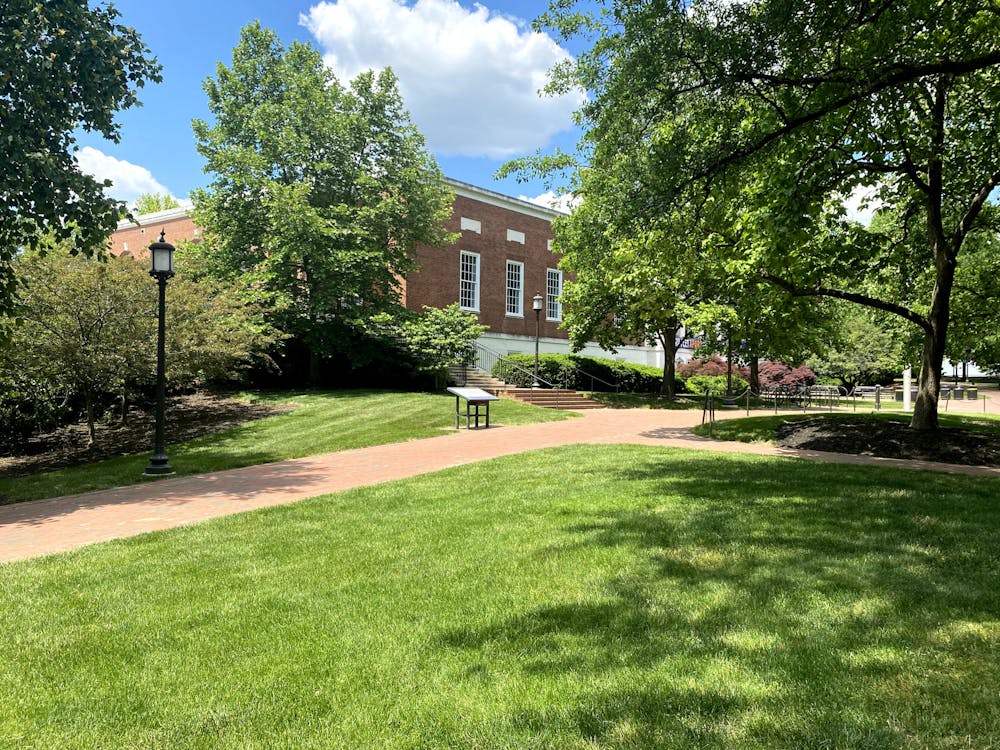The Student Government Association (SGA) held its weekly meeting on Nov. 30 to conduct a Q&A session with administrators from various departments within the University. Members presented on the issues of health and well-being as well as diversity and inclusion and then brought up questions to administrators.
Health and well-being presentation
Executive President Mehak Ali, Sophomore Class Senator Rachel Huang and Senior Class Senator Subha Bhatta presented on SGA’s past and current initiatives pertaining to health and well-being.
- Bhatta presented student concerns. “Student mental health has been a long-standing issue at Hopkins,” she said. “Many students feel that there is not enough mental health support overall, and among the resources we do have, that support is often inaccessible.”
- Senior Class President Nathan Mudrak asked the panel of administrators about the original motivation for the removal of fall break. Executive Vice Provost for Academic Affairs Stephen Gange explained that the decision came as a result of feedback the administration received from the Student Services Excellence Initiative survey from 2019.
- “A key concern of students was a lack of a unified academic calendar,” Gange said. “Students don’t like when breaks and calendars are mismatched across schools.”
- Gange also mentioned that students might not have liked the consequences “when for example the school calendar designates that we will hold Tuesday classes on a Wednesday.”
- Gange also noted that “fall break extended the amount of time students are in school closer to the Christmas holiday.”
- Another concern brought by SGA based on student feedback was the inability to get some disabilities, particularly Attention Deficit Hyperactivity Disorder (ADHD), diagnosed through Hopkins services.
- Executive Director of Student Disability Services (SDS) Catherine Axe explained that an ADHD working group has been formed to address these concerns. She noted that as of now, SDS has “specialists who currently help get referrals for students but not sustained support.”
- The working group will explore expanding services pertaining to ADHD diagnoses and treatments, whether Hopkins insurance will cover these services and how SDS can make these resources available across the University.
Diversity and inclusion presentation
Ali, Sophomore Class Senator Harvey McGuinness, Sophomore Class Senator Shalala Leny and Senior Class Senator Niki Trivedi addressed past and current SGA initiatives pertaining to diversity and inclusion, including tabling events to promote students listing their pronouns on the Student Information System (SIS) and collaboration with disability advocacy groups and transgender student groups.
- Trivedi outlined student concerns to administrators about areas for improvement in diversity and inclusion trainings, a general lack of clarity about how to report issues to the Office of Institutional Equity (OIE) and SDS and general concerns with the OIE investigation process regarding sexual harassment and assault.
- SDS Director at Homewood Campus Terri Massie-Burrell described her experience with familiarizing new hires with the processes for responding to and acquiring accommodations for students in their classes. She noted that SDS “wants to promote student self-advocacy in terms of acquiring accommodations because they will have to do this in their graduate and professional careers.”
- Several SGA members raised questions about whether faculty could be required to comply with mandatory diversity trainings.
- Junior Class Senator JiWon Woo argued that since students are required to complete a diversity and training, faculty should also be required to complete one because they occupy the classroom together.
- Ali and Sophomore Class President Kobi Khong inquired about the plausibility of making training mandatory, but Axe believes that it is “tricky to make something mandatory.” Gange stated that he was “not sure if mandating diversity training [for staff] would be the right solution for promoting diversity.”
- Bhatta noted that the Homewood Campus is “very difficult for people with physical disabilities to navigate” and asked how Hopkins is planning to create a more physically accessible campus.
- Axe stated that in 2020 an external company completed an accessibility survey of the campus and noted all points of concern. She emphasized that the incoming Student Center will have four accessible points of entry, which will serve as a point of connection between lower and higher points of campus as the Mattin Center did.





